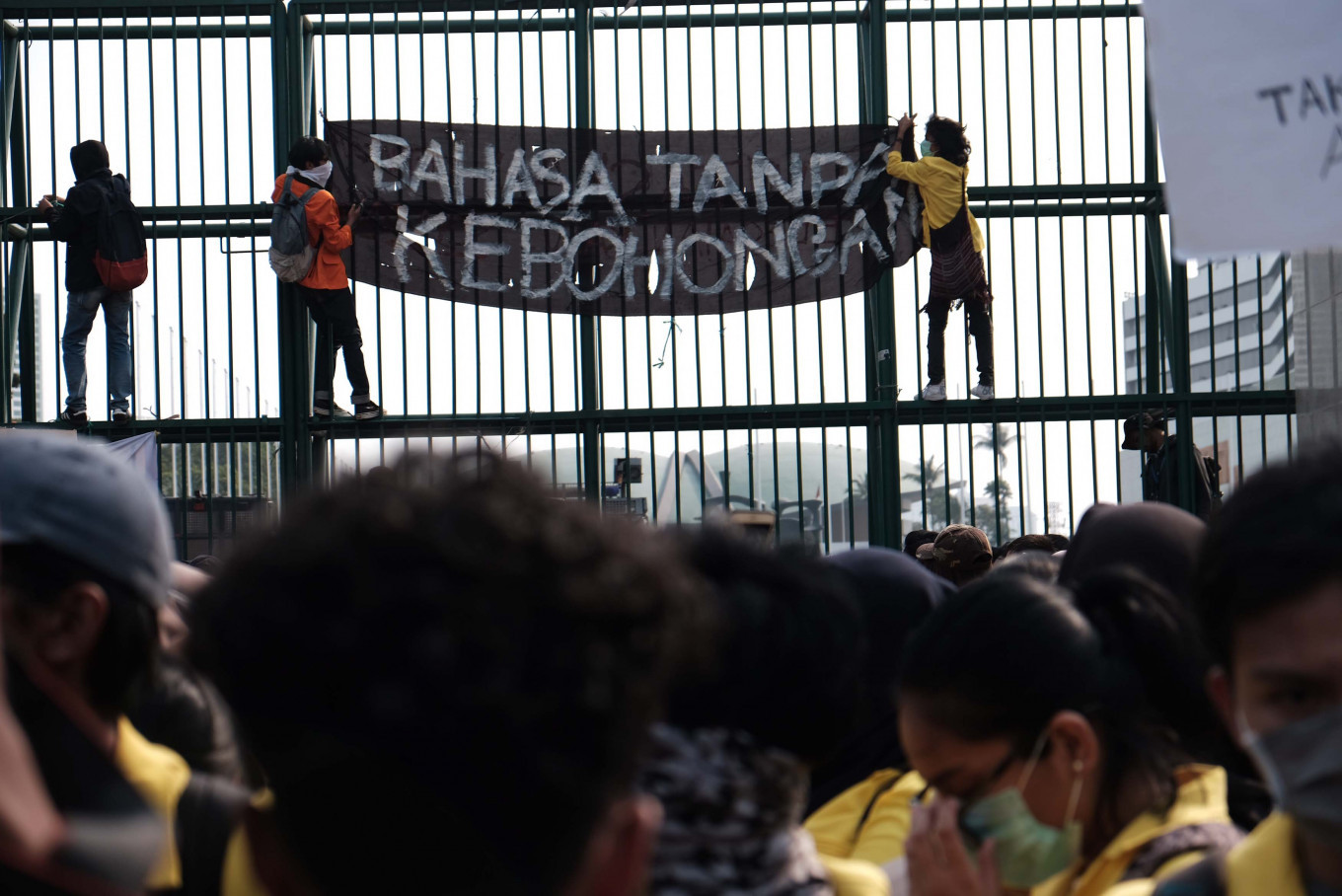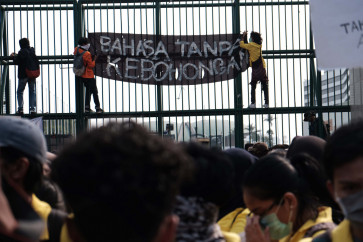Popular Reads
Top Results
Can't find what you're looking for?
View all search resultsPopular Reads
Top Results
Can't find what you're looking for?
View all search resultsProsperity and perception: Expert forum reviews Indonesia's democracy
Yesterday's forum looked at democratic progress in Indonesia, including ongoing challenges as well as a public satisfaction survey that suggests a correlation between democracy and prosperity.
Change text size
Gift Premium Articles
to Anyone
T
he current model of democracy in Indonesia, which has been in place for the past 20 years as the successor to the New Order's authoritarian model of government, will continue to face challenges in the coming years, especially with nondemocratic governments gaining more traction in recent years, political analysts say.
Executive director Philips J. Vermonte of the Centre for Strategic and International Studies (CSIS) Indonesia said that if the ongoing fragmentation and elite infighting continued to hamper the government from delivering public welfare, both politicians with an antidemocratic bent and a public impatient over minimal democratic gains could look to countries that had taken a alternative route to prosperity.
“There are significant challenges to the democratic movement in Indonesia at present because there is the Beijing model, which has made impressive economic progress without an accompanying improvement in [individual] freedoms. This is a challenge [for] a democratic, civilian regime to produce deliverables in the economic context,” Philips said at a public forum on Wednesday evening.
He pointed to a number of major issues that were being discussed before the COVID-19 pandemic, including a plan to amend the Constitution to extend the presidential term and revive the New Order-era State Policy Guidelines (GBHN), which could feed into the antidemocratic trend.
The discussions on reverting to nondemocratic practices could also be seen as a symptom of public discontent over the current state of Indonesian democracy, Philips said. He especially pointed to the breakdown of consensual deliberation in the policymaking process that had compromised the government's ability to deliver public goods.
Also exacerbating the issue was the multiparty system, which did not allow any one party to gain a clear advantage.
“We see that with more parties, there are now more veto players. And it has also affected how the decision-making process is conducted and [how] the public welfare policies have become suboptimal,” he said.


















